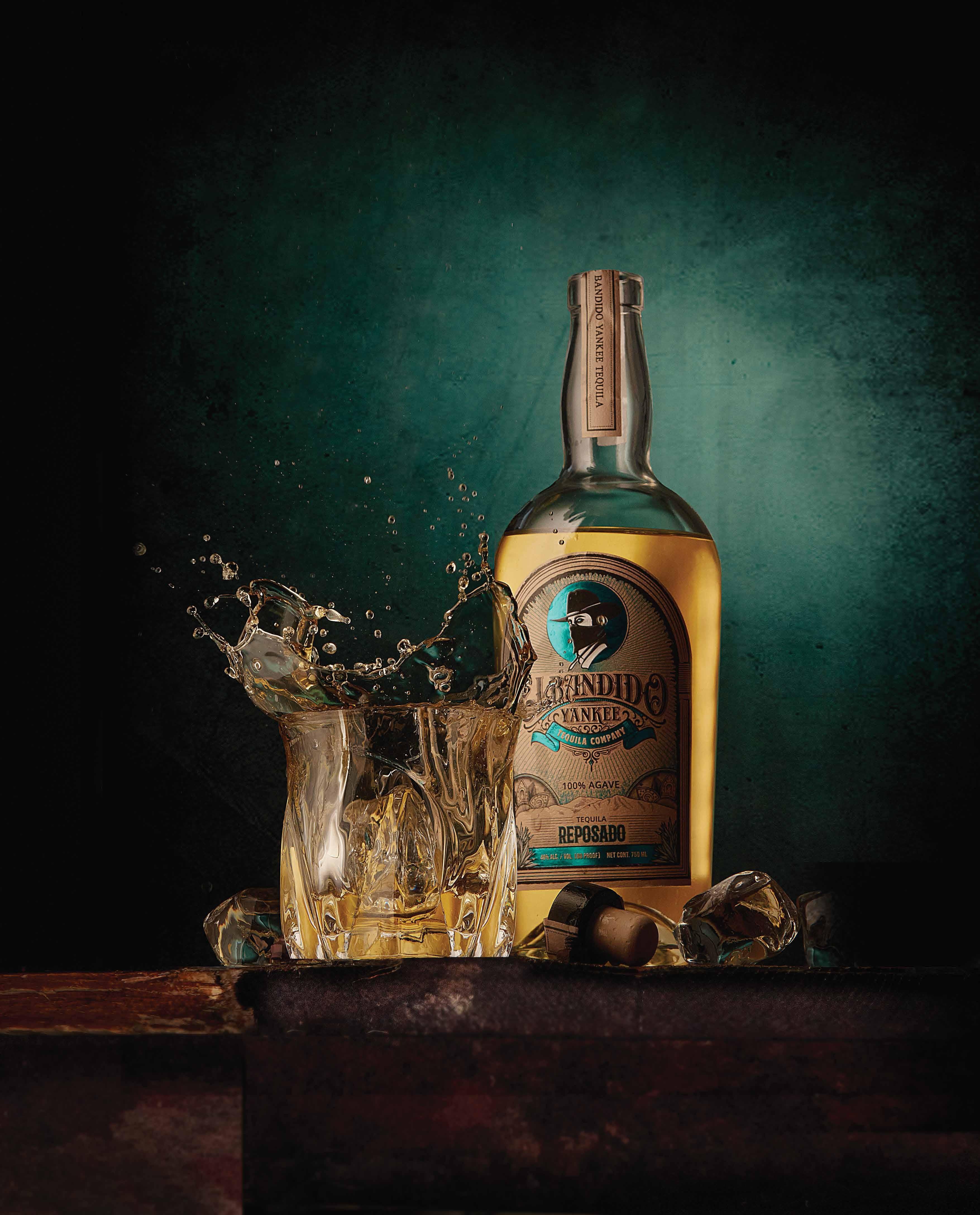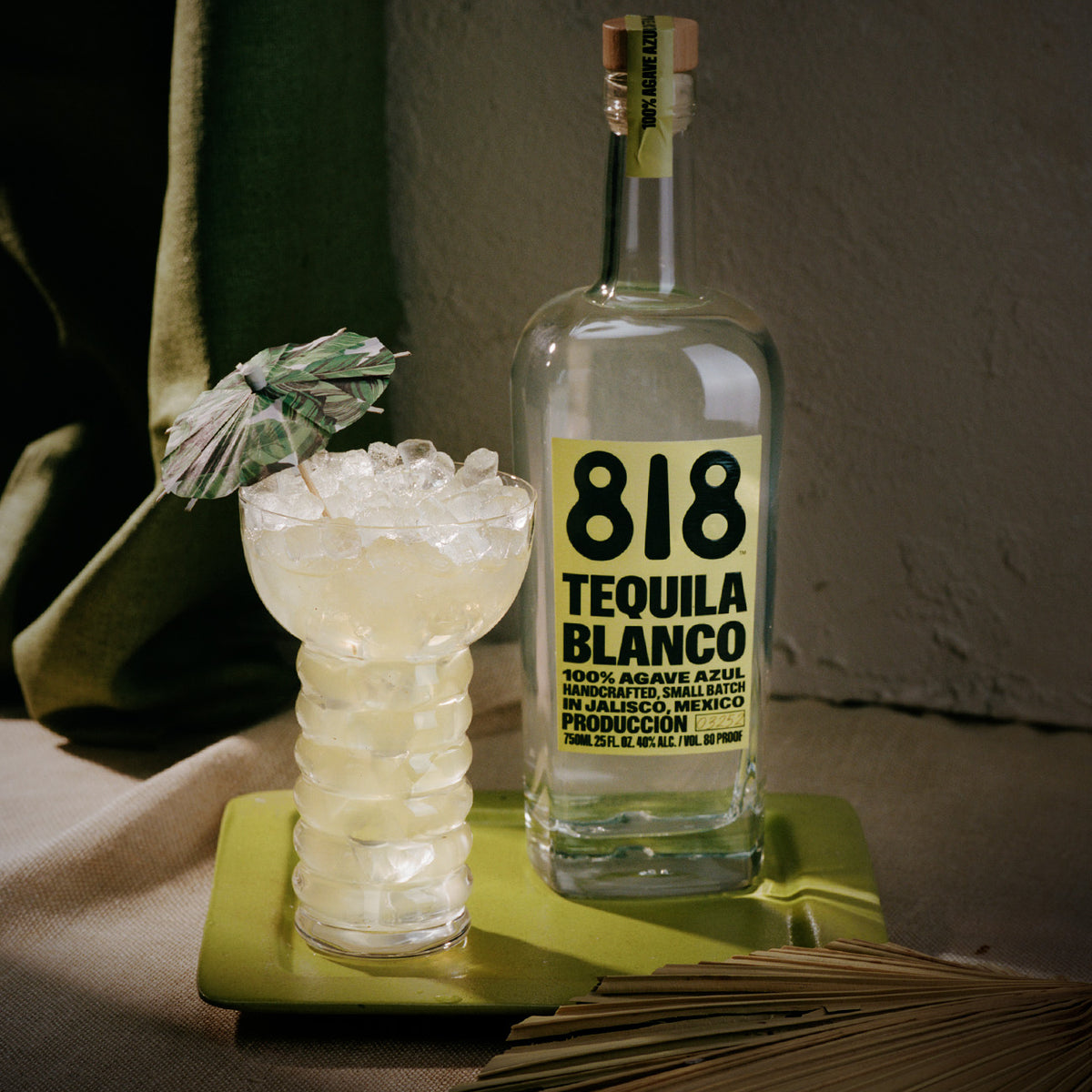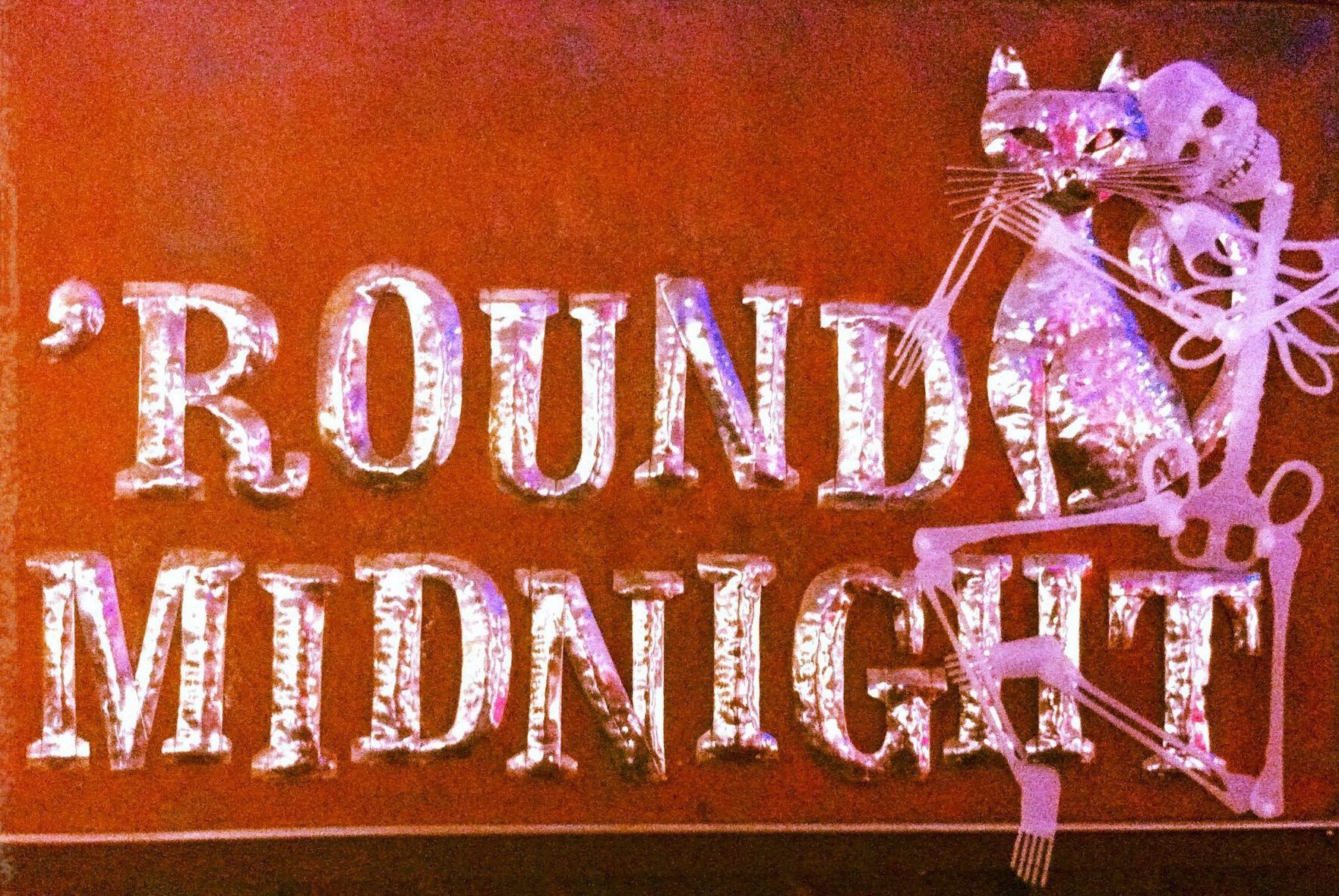
Introduction
Tequila is a popular spirit that is often enjoyed neat or mixed into cocktails. However, you may have heard rumors of tequila being able to freeze at low temperatures. In this article, we will explore the science behind tequila freezing and its composition.
The Science Behind Tequila Freezing
Tequila has a relatively low freezing point compared to other alcohols. The freezing point of tequila is around -38 degrees Celsius or -36 degrees Fahrenheit. This means that if you were to leave a bottle of tequila in the freezer at home, it could potentially freeze solid.
The reason behind tequila’s low freezing point lies in its alcohol content. Tequila is typically distilled to a high alcohol concentration, usually around 40% or 80 proof. The presence of alcohol lowers the freezing point of the liquid, allowing it to remain in a liquid state even at lower temperatures.
The Composition of Tequila
Tequila is made from the blue agave plant, specifically the heart or piña of the plant. The piñas are harvested, roasted, and then crushed to extract the juice. This juice is fermented and distilled to create tequila.
In addition to alcohol, tequila also contains other compounds that contribute to its unique flavor profile. These compounds include carbohydrates, such as fructose, which is derived from the agave plant. It also contains organic acids, esters, aldehydes, and other volatile compounds that contribute to the aroma and taste of the spirit.
The specific composition of tequila can vary depending on factors such as the type of agave used, the aging process, and any additives or flavorings that may be included. For example, tequila that is labeled as “reposado” or “añejo” has been aged in oak barrels, which imparts additional flavors and aromas.
In conclusion, the science behind tequila freezing lies in its alcohol content, which lowers its freezing point. The composition of tequila includes alcohol, carbohydrates, organic acids, and other compounds that contribute to its distinct flavor profile. Understanding these factors can enhance your appreciation and enjoyment of this beloved Mexican spirit.
The Freezing Point Of Tequila
Tequila is a popular spirit that is often enjoyed neat or mixed into cocktails. However, there is a misconception about tequila freezing. In this article, we will explore the science behind tequila freezing and its composition.
The Effect Of Alcohol Concentration
Tequila has a relatively low freezing point compared to other alcohols. The freezing point of tequila is around -38 degrees Celsius or -36 degrees Fahrenheit. This means that if a bottle of tequila is left in the freezer, it could potentially freeze solid.
The reason behind tequila’s low freezing point lies in its alcohol content. Tequila is typically distilled to a high alcohol concentration, usually around 40% or 80 proof. The presence of alcohol lowers the freezing point of the liquid, allowing it to remain in a liquid state even at lower temperatures.
Chilled Temperature Requirements
To freeze tequila, it would need to be exposed to temperatures below its freezing point for a prolonged period of time. In a typical freezer setting, this would require temperatures of -18 degrees Celsius or 0 degrees Fahrenheit and below. However, it is important to note that the freezing point can vary slightly depending on the specific alcohol content and composition of the tequila.
It is worth mentioning that freezing tequila does not necessarily affect its quality or taste. Once thawed, the tequila can still be enjoyed as usual. However, repeated freezing and thawing may have an impact on its flavor and texture over time.
The Composition Of Tequila
Tequila is made from the blue agave plant, specifically the heart or piña of the plant. The piñas are harvested, roasted, and then crushed to extract the juice. This juice is fermented and distilled to create tequila.
In addition to alcohol, tequila also contains other compounds that contribute to its unique flavor profile. These compounds include carbohydrates, such as fructose, derived from the agave plant. It also contains organic acids, esters, aldehydes, and other volatile compounds that contribute to the aroma and taste of the spirit.
The specific composition of tequila can vary depending on factors such as the type of agave used, the aging process, and any additives or flavorings that may be included. For example, tequila that is labeled as “reposado” or “añejo” has been aged in oak barrels, which imparts additional flavors and aromas.
Understanding the freezing point and composition of tequila can enhance your appreciation and enjoyment of this beloved Mexican spirit.
Testing The Freezing Point Of Tequila
Experimental Setup
To determine whether tequila can freeze, an experiment was conducted at the Firehouse Wine Bar & Shop.
- Five bottles of tequila were selected, each with different alcohol concentrations. The bottles were labeled as follows:
- Bottle 1: 40% alcohol content (80 proof)
- Bottle 2: 50% alcohol content (100 proof)
- Bottle 3: 60% alcohol content (120 proof)
- Bottle 4: 70% alcohol content (140 proof)
- Bottle 5: 80% alcohol content (160 proof)
- Each bottle was placed in a freezer set at a temperature of -18 degrees Celsius (-0.4 degrees Fahrenheit).
- The bottles were left in the freezer for a period of 24 hours to allow sufficient time for freezing to occur.
Results And Observations
After 24 hours, the bottles were checked for any signs of freezing. Here are the observations:
- Bottle 1 (40% alcohol content) remained in a liquid state, indicating that it did not freeze.
- Bottle 2 (50% alcohol content) showed slight slushiness but did not freeze completely.
- Bottle 3 (60% alcohol content) formed a slushy texture with some ice crystals but was not fully frozen.
- Bottle 4 (70% alcohol content) had a partially frozen consistency with thicker ice formations.
- Bottle 5 (80% alcohol content) was completely frozen, forming solid ice.
From these observations, it can be concluded that tequila with alcohol concentrations below 60% (120 proof) will not freeze at typical freezer temperatures of -18 degrees Celsius (-0.4 degrees Fahrenheit). However, tequila with higher alcohol concentrations, such as 70% (140 proof) or 80% (160 proof), has the potential to freeze solid under the same conditions.
It is important to note that freezing tequila does not necessarily affect its quality or taste. Once thawed, the tequila can still be enjoyed as usual. However, repeated freezing and thawing may have an impact on its flavor and texture over time.
In conclusion, tequila can freeze under certain conditions, particularly when it has a higher alcohol concentration. Understanding the freezing point of tequila can help bartenders and tequila enthusiasts make informed decisions when storing and serving this beloved spirit.
Factors Affecting Tequila’s Freezing Point
Other Chemical Compounds In Tequila
Tequila is not solely made up of alcohol; it also contains other chemical compounds that can affect its freezing point. One such compound is sugar, specifically agave nectar, which is used during the fermentation process. Sugar lowers the freezing point of liquids, which means that tequila with higher sugar content may have a lower freezing point. Additionally, the presence of other organic compounds, such as oils and esters, could also influence the freezing point of tequila.
Impurities And Additives
The presence of impurities or additives in tequila can also impact its freezing point. Some tequilas undergo filtration or aging processes that can introduce impurities, such as water or natural flavors. These impurities can lower the overall alcohol concentration and affect the freezing point. Additionally, certain additives, such as glycerol or caramel coloring, can also alter the freezing point of tequila.
It is important to note that the alcohol content stated on the bottle does not necessarily indicate the exact freezing point of tequila. While higher alcohol concentrations generally result in a lower freezing point, other factors such as impurities and additives can influence this as well. Therefore, it is possible for two tequilas with the same alcohol content to have slightly different freezing points.
Understanding the factors that affect tequila’s freezing point can provide valuable insights for both tequila enthusiasts and professionals in the industry. Whether you’re a bartender looking to serve the perfect chilled tequila or a consumer storing tequila in the freezer, being aware of these factors can help you make informed decisions and ensure the best possible experience with this beloved spirit.

Can Tequila Freeze?
Exploring The Possibility
Tequila enthusiasts often wonder if tequila can freeze. Tequila, a distilled spirit made from the blue agave plant, has a complex composition that can affect its freezing point. While the most prominent component is alcohol, there are other chemical compounds and factors that also play a role.
One such factor is the presence of sugar in tequila, specifically agave nectar used during the fermentation process. Sugar can lower the freezing point of liquids, so tequila with higher sugar content may have a lower freezing point. Additionally, the presence of organic compounds like oils and esters can influence the freezing point as well.
Another factor to consider is the presence of impurities or additives in tequila. Filtration or aging processes can introduce impurities like water or natural flavors, which can lower the overall alcohol concentration and affect the freezing point. Additives like glycerol or caramel coloring can also alter the freezing point of tequila.
Real-life Experiences
It’s important to note that the alcohol content listed on the bottle doesn’t necessarily indicate the exact freezing point of tequila. While higher alcohol concentrations generally result in a lower freezing point, impurities and additives can influence this as well. Hence, two tequilas with the same alcohol content may have slightly different freezing points.
Understanding these factors can be valuable for both tequila enthusiasts and industry professionals. Bartenders aiming to serve the perfect chilled tequila or consumers storing tequila in their freezer can make more informed decisions. By being aware of these factors, they can ensure the best possible experience with this beloved spirit.
In conclusion, while tequila does have a freezing point, it can be influenced by various factors such as the presence of sugar, impurities, and additives. The exact freezing point may vary from one tequila to another, making it important to consider these factors when handling and storing tequila.
Tequila Freezing In Practice
Chilling Techniques
In practice, freezing tequila can be a useful technique for achieving the ideal serving temperature. Here are a few methods to chill tequila effectively:
- Refrigerator: Place the bottle of tequila in the refrigerator for a few hours before serving. This gradual cooling method will bring the tequila to a refreshing temperature without compromising its flavor.
- Ice Bucket: Fill an ice bucket with ice and water, then submerge the tequila bottle in it. The ice-cold water will cool down the tequila quickly, allowing you to enjoy a chilled drink.
- Freezer: If you prefer a more intense chill, you can store the tequila bottle in the freezer for a short period. Be careful not to leave it in the freezer for too long, as prolonged exposure to extreme temperatures can impact its taste and quality.
Recommendations For Serving
When it comes to serving tequila at the ideal temperature, here are a few considerations:
- Tequila Types: Different types of tequila may require slightly different serving temperatures. Blanco or silver tequilas are typically best served chilled, while aged tequilas may benefit from being served at a slightly warmer temperature to allow their complex flavors to fully develop.
- Glassware: Choose the right glassware for your tequila. While shot glasses are commonly used, consider using a snifter or a tumbler glass for sipping tequilas. These glasses allow you to fully appreciate the aromas and flavors of the spirit.
- Accompaniments: Consider serving tequila with accompaniments that complement its flavors. Lime and salt are classic choices, but you can also try pairing it with fresh fruit slices or a spicy rimming salt for a unique twist.
By following these chilling techniques and serving recommendations, you can enhance your tequila experience and fully appreciate the nuances of this beloved spirit. Enjoying tequila at the right temperature allows you to savor its flavors and aromas to the fullest. Whether you prefer it neat, on the rocks, or in a cocktail, a well-chilled tequila is sure to delight your senses.
Freezing Tequila Vs. Chilling
The Benefits Of Freezing
Freezing tequila can be a useful technique for achieving the ideal serving temperature. Here are a few benefits of freezing tequila:
- Quick Chilling: Freezing tequila in the freezer for a short period can rapidly cool it down, allowing you to enjoy a chilled drink in no time.
- Intensity of Chill: If you prefer a more intense chill, freezing tequila can provide a colder temperature compared to other chilling methods.
- Prolonged Coolness: Freezing tequila can help maintain its chilled state for a longer period, allowing you to enjoy your drink at a refreshing temperature.
Optimal Serving Temperatures
When it comes to serving tequila at the ideal temperature, here are a few recommendations to consider:
- Blanco or Silver Tequilas: These types of tequila are typically best served chilled. Freezing can be an effective way to achieve the desired temperature for a crisp and refreshing taste.
- Aged Tequilas: Aged tequilas may benefit from being served at a slightly warmer temperature. This allows their complex flavors to fully develop, enhancing the overall drinking experience.
By understanding the optimal serving temperatures for different types of tequila, you can ensure that you enjoy their unique characteristics to the fullest.
Overall, both freezing and chilling tequila can be effective methods for achieving the desired drinking temperature. Whether you choose to freeze your tequila for a quick and intense chill or opt for other chilling techniques like refrigeration or an ice bucket, the goal is to enhance your tequila experience by serving it at the ideal temperature. By following these recommendations, you can fully appreciate the flavors and aromas of tequila, ensuring a delightful drinking experience.

Myth Debunked: Tequila And Freezing
Common Misconceptions
There is a prevalent misconception among tequila enthusiasts and those who enjoy chilled drinks that tequila cannot be frozen. However, this is not entirely true. Tequila, like any other alcoholic beverage, can indeed be frozen.
Scientific Explanations
The freezing point of tequila is influenced by its chemical composition. Tequila is primarily composed of alcohol, with ethanol being the most prominent type. Ethanol has a freezing point of -173.2°F or -114°C. Therefore, freezing tequila is entirely possible, and it can reach the same freezing temperature as other alcoholic beverages.
Freezing Tequila Vs. Chilling
The Benefits Of Freezing
Freezing tequila can be a useful technique for achieving the ideal serving temperature. Here are a few benefits of freezing tequila:
- Quick Chilling: Freezing tequila in the freezer for a short period can rapidly cool it down, allowing you to enjoy a chilled drink in no time.
- Intensity of Chill: If you prefer a more intense chill, freezing tequila can provide a colder temperature compared to other chilling methods.
- Prolonged Coolness: Freezing tequila can help maintain its chilled state for a longer period, allowing you to enjoy your drink at a refreshing temperature.
Optimal Serving Temperatures
When it comes to serving tequila at the ideal temperature, here are a few recommendations to consider:
- Blanco or Silver Tequilas: These types of tequila are typically best served chilled. Freezing can be an effective way to achieve the desired temperature for a crisp and refreshing taste.
- Aged Tequilas: Aged tequilas may benefit from being served at a slightly warmer temperature. This allows their complex flavors to fully develop, enhancing the overall drinking experience.
By understanding the optimal serving temperatures for different types of tequila, you can ensure that you enjoy their unique characteristics to the fullest.
Overall, both freezing and chilling tequila can be effective methods for achieving the desired drinking temperature. Whether you choose to freeze your tequila for a quick and intense chill or opt for other chilling techniques like refrigeration or an ice bucket, the goal is to enhance your tequila experience by serving it at the ideal temperature. By following these recommendations, you can fully appreciate the flavors and aromas of tequila, ensuring a delightful drinking experience.
Myth Debunked: Tequila And Freezing
Common Misconceptions
There is a prevalent misconception among tequila enthusiasts and those who enjoy chilled drinks that tequila cannot be frozen. However, this is not entirely true. Tequila, like any other alcoholic beverage, can indeed be frozen.
Scientific Explanations
The freezing point of tequila is influenced by its chemical composition. Tequila is primarily composed of alcohol, with ethanol being the most prominent type. Ethanol has a freezing point of -173.2°F or -114°C. Therefore, freezing tequila is entirely possible, and it can reach the same freezing temperature as other alcoholic beverages.
Freezing Tequila Vs. Chilling
The Benefits Of Freezing
Freezing tequila can be a useful technique for achieving the ideal serving temperature. Here are a few benefits of freezing tequila:
- Quick Chilling: Freezing tequila in the freezer for a short period can rapidly cool it down, allowing individuals to enjoy a chilled drink in no time.
- Intensity of Chill: If a more intense chill is preferred, freezing tequila can provide a colder temperature compared to other chilling methods.
- Prolonged Coolness: Freezing tequila can help maintain its chilled state for a longer period, allowing individuals to savor their drink at a refreshing temperature.
Optimal Serving Temperatures
When it comes to serving tequila at the ideal temperature, the following recommendations can be considered:
- Blanco or Silver Tequilas: These types of tequila are typically best served chilled. Freezing can be an effective way to achieve the desired temperature for a crisp and refreshing taste.
- Aged Tequilas: Aged tequilas may benefit from being served at a slightly warmer temperature. This allows their complex flavors to fully develop, enhancing the overall drinking experience.
By understanding the optimal serving temperatures for different types of tequila, individuals can ensure that they enjoy their unique characteristics to the fullest.
Overall, both freezing and chilling tequila can be effective methods for achieving the desired drinking temperature. Whether one chooses to freeze tequila for a quick and intense chill or opts for other chilling techniques like refrigeration or an ice bucket, the goal is to enhance the tequila experience by serving it at the ideal temperature. By following these recommendations, individuals can fully appreciate the flavors and aromas of tequila, ensuring a delightful drinking experience.
Conclusion
Recap Of Key Points
Tequila can be frozen, contrary to common misconceptions.
The freezing point of tequila is influenced by its alcohol content, primarily ethanol.
Freezing tequila provides quick chilling, intense chill, and prolonged coolness.
Blanco or Silver Tequilas are best served chilled, while aged tequilas benefit from a slightly warmer temperature.
Further Explorations In Tequila Studies
For those interested in delving deeper into tequila studies, there is still much to explore. The world of tequila offers a rich history, production techniques, aging processes, and regional variations that can enhance one’s appreciation and knowledge of this unique spirit.
Exploring topics such as the impact of different types of agave, the intricacies of distillation, the role of barrels in aging, and the craftsmanship behind the production can provide a deeper understanding of tequila and its complexities.
By expanding knowledge in these areas, tequila enthusiasts can elevate their enjoyment and contribute to the vibrant world of tequila appreciation.
FAQ: Can Tequila Freeze? Chilling the Agave Spirit Inquiry
Q: Can tequila freeze?
A: Yes, tequila can freeze under certain circumstances.
Q: What causes tequila to freeze?
A: The freezing point of tequila depends on its alcohol content. Tequilas with higher alcohol percentages are less likely to freeze compared to those with lower alcohol percentages. However, if the tequila’s alcohol content is around 40% or less, it may freeze when exposed to very low temperatures.
Q: What happens if tequila freezes?
A: When tequila freezes, the liquid becomes solid, much like other alcoholic beverages. The freezing process may cause the water and alcohol in the tequila to separate, affecting the taste and texture of the drink. Once thawed, the tequila may appear cloudy or have a slightly altered flavor.
Q: Can freezing affect the quality of tequila?
A: Freezing tequila can potentially affect its quality. The separation of water and alcohol molecules during freezing can alter the taste, aroma, and overall character of the tequila. However, the impact on quality may vary depending on the specific tequila and how it is thawed.
Q: How long does it take for tequila to freeze?
A: The time it takes for tequila to freeze depends on several factors, such as the alcohol content and the temperature at which it is stored. Generally, it can take a few hours or more for tequila to freeze if placed in a standard household freezer.
Q: Can I safely consume tequila that has been frozen?
A: Generally, tequila that has been thawed after freezing is safe to drink. Just ensure that it has been properly stored and there are no signs of spoilage or contamination. However, as the taste and texture may be affected, it is recommended to assess the quality before consuming it.
Q: How can I prevent tequila from freezing?
A: To prevent tequila from freezing, store it at room temperature or in a cool place away from extreme cold. Avoid exposing it to temperatures below freezing, as this increases the risk of freezing. If you want to chill your tequila without freezing it, consider using an ice bucket or a refrigerator to keep it cool.
Q: Is it advisable to freeze tequila intentionally?
A: While freezing tequila to create unique cocktails or flavor variations may be experimented with, it is generally not recommended. Freezing can alter the taste and texture of tequila, which may not be desirable for most drinkers. It is best to follow traditional serving suggestions and enjoy tequila at its optimal state.
Remember, if you have any further concerns or questions regarding tequila or any other spirits, reach out to a knowledgeable liquor professional for more information.

Welcome to the vibrant world of Round Midnight, a haven for jazz and blues enthusiasts in the heart of London. Nestled in The Agricultural at 13 Liverpool Rd, London N1 0RW, United Kingdom, Round Midnight is the city’s sole dedicated venue for soul-stirring jazz and blues melodies. Since its inception, Round Midnight has been committed to curating an unparalleled live music experience, hosting electrifying performances a staggering eight times a week. With free entry every time, we ensure that the magic of jazz and blues is accessible to all who seek it.